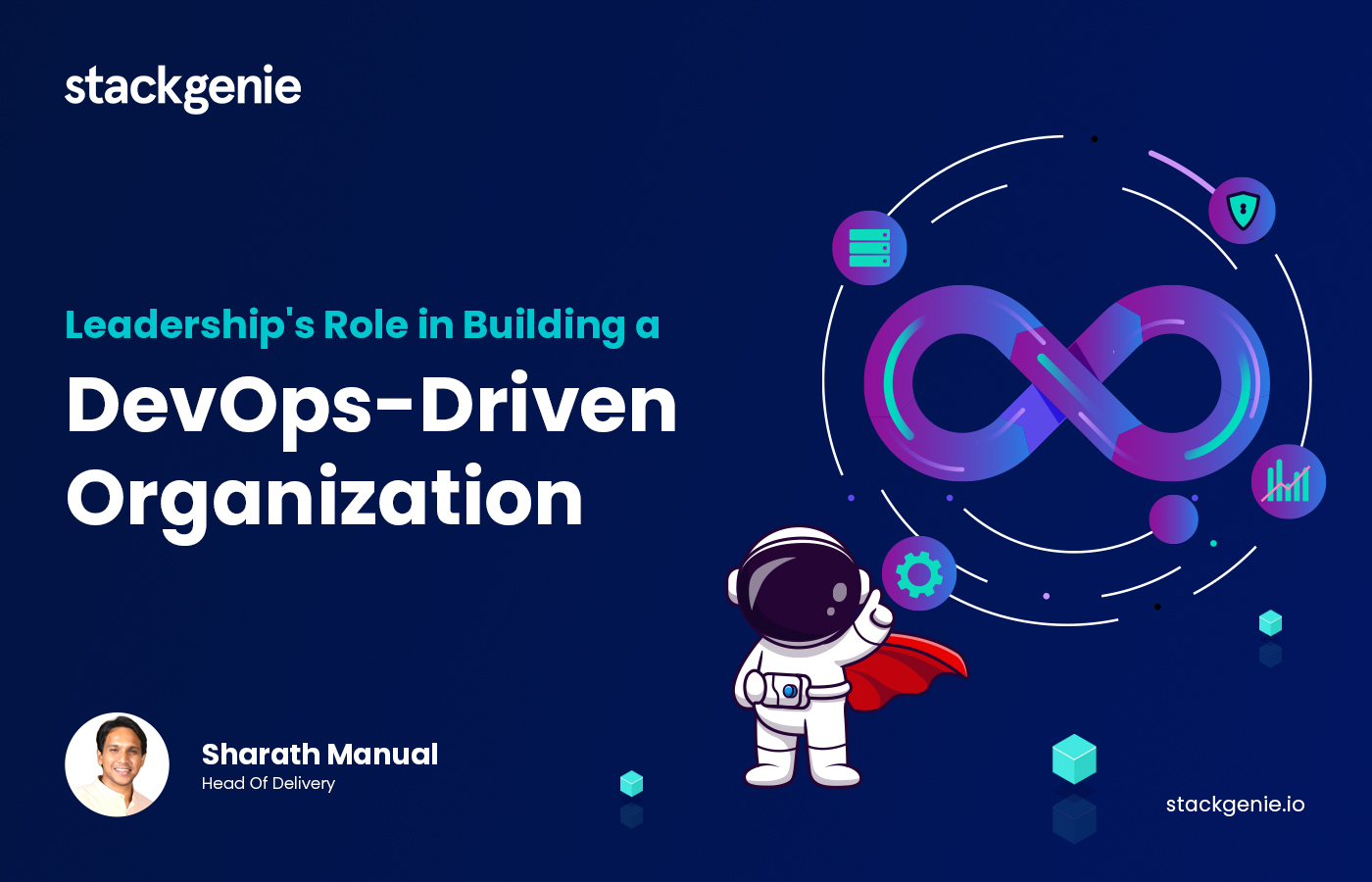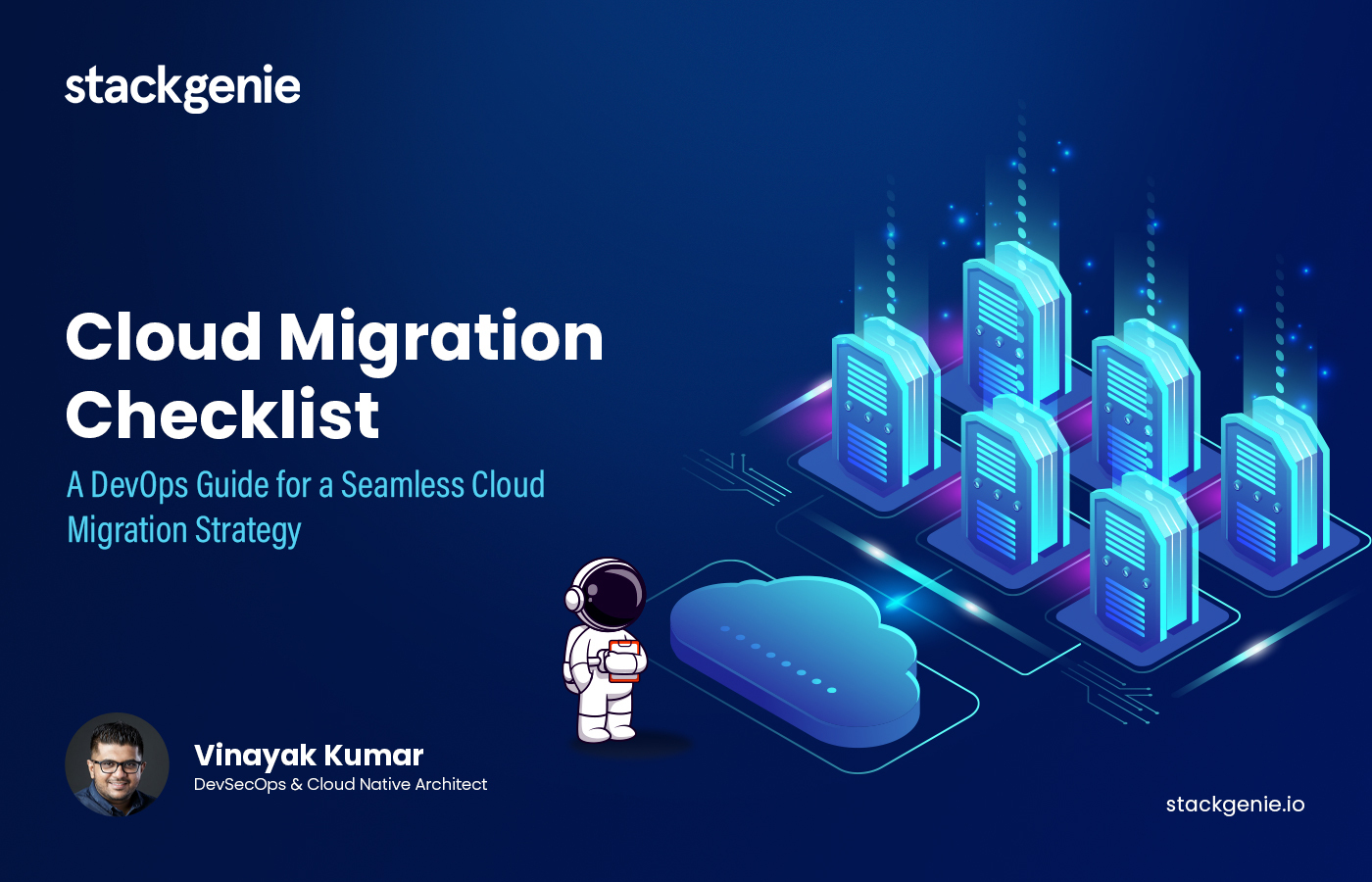5 Key Roles Every DevOps Leader Must Play
Leading a DevOps transformation is no small task. It requires more than just technical —it demands a leader who can guide teams. Let’s discuss the responsibilities of DevOps leadership.Role 1: Setting the Vision for DevOps Transformation
Before diving headfirst into DevOps, it’s crucial to have a vision. Leaders need to clearly explain why DevOps is a game-changer, how it fits into the company’s master plan, and what kind of magic we’re aiming to unlock. A clear vision not only keeps everyone on the same page but also gets the team excited to jump on board.Key Actions for Leaders:
-
Communicate the “Why”
You can’t just say, “Hey, we’re doing DevOps now!”. Explain the perks, like faster releases, smoother teamwork, and better-quality products. Clearly showing the benefits and make it sound so good they’ll wonder why we weren’t doing this all along.

-
Align DevOps with Business Goals

-
Inspire Team
Role 2: Fostering a Culture of Collaboration and Trust
DevOps is all about teamwork making the dream work. But to really get that magic going, we need to break down the walls between development, operations, QA, and anyone else who’s in the loop. Think of it as one big, happy family (minus the awkward holiday dinners). Leaders need to build an atmosphere where people actually like talking to each other, trust each other, and work together—because without that, DevOps is just a fancy word.Key Actions for Leaders:
-
Promote Cross-Functional Teams:

-
Model Collaborative Behavior:
-
Create Safe Spaces for Innovation :
Role 3: Empowering Teams with Autonomy
DevOps is like giving your team the keys to the car and saying, “Drive!” For DevOps to really shine, teams need the freedom to make decisions quickly, without getting bogged down in red tape or waiting for approval from five layers of management. Leaders need to step back, ditch the “command and control” style, and let teams take the wheel (without grabbing it from them every two seconds).Key Actions for Leaders:
-
Delegate Decision-Making:
-
Encourage Accountability:
-
Invest in Skills Development:
Role 4: Driving Continuous Improvement
DevOps isn’t just about cranking out releases non-stop—it’s about always leveling up. Leaders need to champion the idea that there’s always room to make things better, whether it’s processes, tools, or how the team works together. By pushing this mindset, you’ll make sure the team keeps growing, improving, and staying ahead of the game.Key Actions for Leaders:
-
Foster a Learning Culture:
-
Encourage Metrics-Driven Decision Making:
-
Celebrate Success and Learn from Failure:
Role 5: Leading by Example
If you want your team to embrace DevOps, you’ve got to lead the charge. It’s not enough to say, “Hey, go do DevOps things.” You need to roll up your sleeves, dive into the transformation, and show your team that you’re all in. Leaders who are open to learning, adapting, and collaborating will naturally inspire their teams to follow suit—because no one wants to be that boss who talks the talk but never walks the walk.Key Actions for Leaders:
-
Be Open to Change:
-
Engage with the Teams:

-
Demonstrate Resilience:
Leadership is the Key to DevOps Success
When it comes to DevOps, leadership is the secret sauce. Sure, tools and tech matter, but it’s the leaders who set the tone, shape the culture, and give the team the support they need to thrive. By encouraging teamwork, giving teams the freedom to own their work, and always pushing for improvements, leaders can turn DevOps from just a cool idea into a way of life for the company. In today’s fast-paced world where speed, agility, and innovation are everything, leaders who embrace DevOps will give their company the edge they need to stay ahead of the game. So, basically, if you’re not driving DevOps, you’re driving the struggle bus.
In today’s fast-paced world where speed, agility, and innovation are everything, leaders who embrace DevOps will give their company the edge they need to stay ahead of the game. So, basically, if you’re not driving DevOps, you’re driving the struggle bus.


